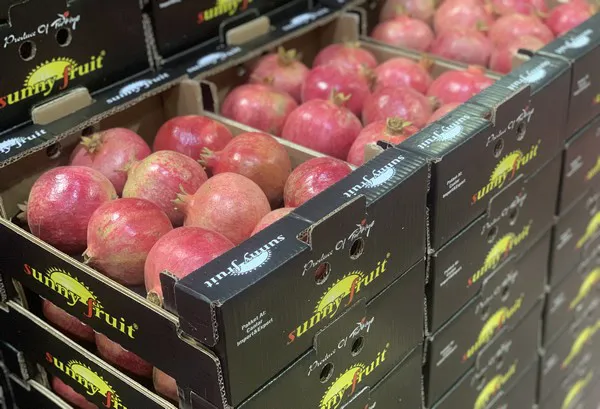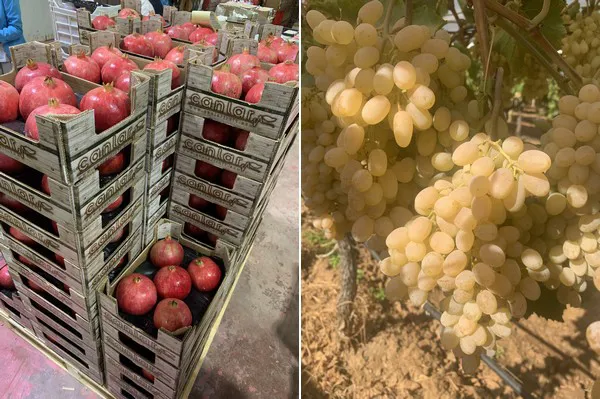The Turkish pomegranate harvest has started and according to one Turkish exporter should be finished any moment. Prices have increased slightly due to quantities being a bit lower than they were last season. This could also cause the season to be somewhat shorter.
According to Sefik Can, senior account manager for Turkish fresh produce exporter Canlar Fruit, the harvest for their pomegranates will finish very soon: “We have started to harvest our pomegranates two weeks ago and the harvest season will be finished any day now. We using a Unitec pomegranate machine for sizing, after which the pomegranates will be sorted by weight and stored in our warehouse until the end of the season. Although it’s still the beginning of the season, we are generally satisfied with the quality and interest in the product so far. Before the season started, we had already agreed to new pomegranate programs with market groups. In addition to our standard shipments we’ve seen strong demand this year, especially from Central Europe. Also Middle East and Assia market is in our target fort he future.”

For Canlar, their focus is on the Nordic territory, but the pomegranates also find their way to various other European countries, Can explains. “Our company is mainly focused on Scandinavian markets. However, Turkish pomegranates attract people with its unique aroma and taste. This means that demands from many parts of Europe and Russia continue to increase every year. We aim to provide our product to our clients without any pesticides problems. For that reason, we have worked with the same group of growers for many years, with a pesticides program that was determined by our agriculture engineers. We strive to understand our customer’s diverse needs and are committed to meeting them and ensuring maximum satisfaction, while also meeting the stringent food safety standards of authorities.”
Due to weather conditions, the production volumes have turned out slightly lower this year, which could lead to a shorter season, Can states: “As in the whole world, global warming causes fluctuations in production. Compared to last year, there is a decrease in production this year. As a result, we can say that there has been a slight increase in prices compared to previous years. In general, we can say that the season will be good for exporters. We do anticipate that the season may end earlier than expected due to the low yield. We think that there may be an increase in prices at the end of November, depending on the supply-demand balance in shipments from the warehouse.”

“With the end of the pomegranate season, the harvest for quince is about to begin. Quince expects to take its deserved place in European markets in recent years thanks to its taste, smell and appearance,” Can explains. Meanwhile, the Turkish exporter is still finishing up the grape season as well. Can states they’ve had a satisfying grape season.
“As always, the Turkish seedless grape Sultanas is preferred in Europe, Russia and Middle East countries with its unique features. Overall, the grape season has been good and we are pleased with the ongoing demands. In addition to Turkish Seedless grapes, demand for varieties such as Crimson, Red Globe and Autumn Royal has been increasing in recent years.” He concludes.
For more information:
Sefik Can
Canlar Fruit
Tel: + 90 (242) 339 21 91
Email: sefik@canlarfruit.com
www.canlarfruit.com
